Phonological awareness Worksheets for Ages 4-5
9 filtered results
-
From - To
Unlock your child's early language skills with our engaging Phonological Awareness Worksheets designed specifically for ages 4-5. These worksheets are crafted to enhance crucial skills such as rhyming, syllable segmentation, and sound identification through fun and interactive activities. Parents and teachers can easily download and print these resources, providing children with a unique opportunity to build a strong foundation in literacy. Whether used at home or in the classroom, our worksheets ensure that learning is both effective and enjoyable. Foster your child's love for reading by exploring our carefully curated collection that sparks curiosity and develops phonological awareness!
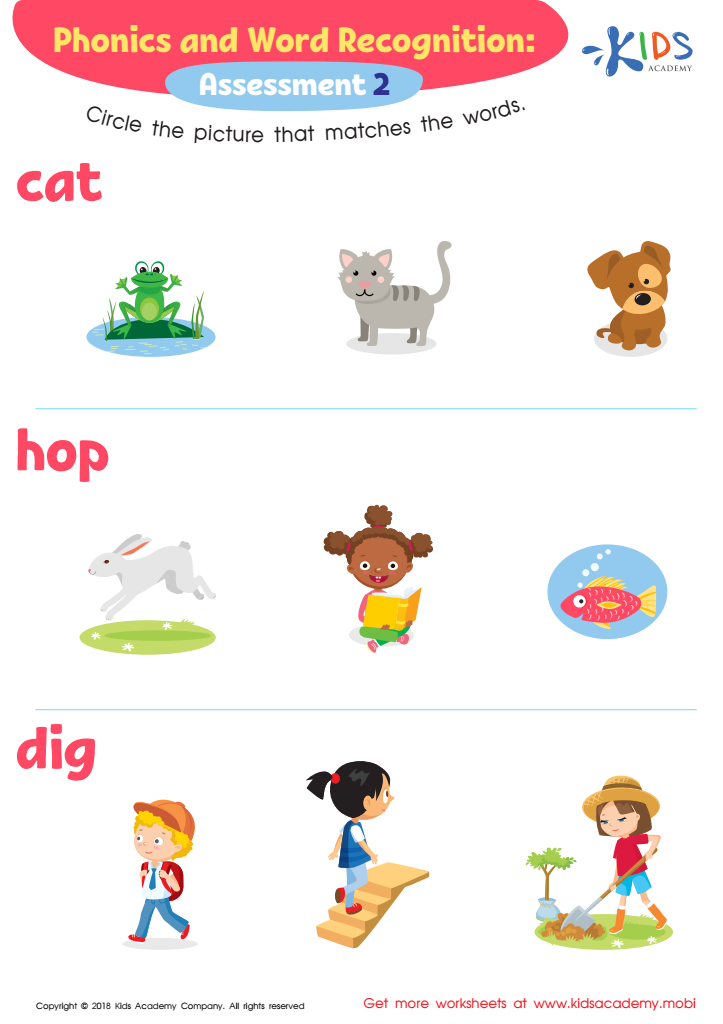

Phonological Awareness: Assessment 2 ELA Worksheet
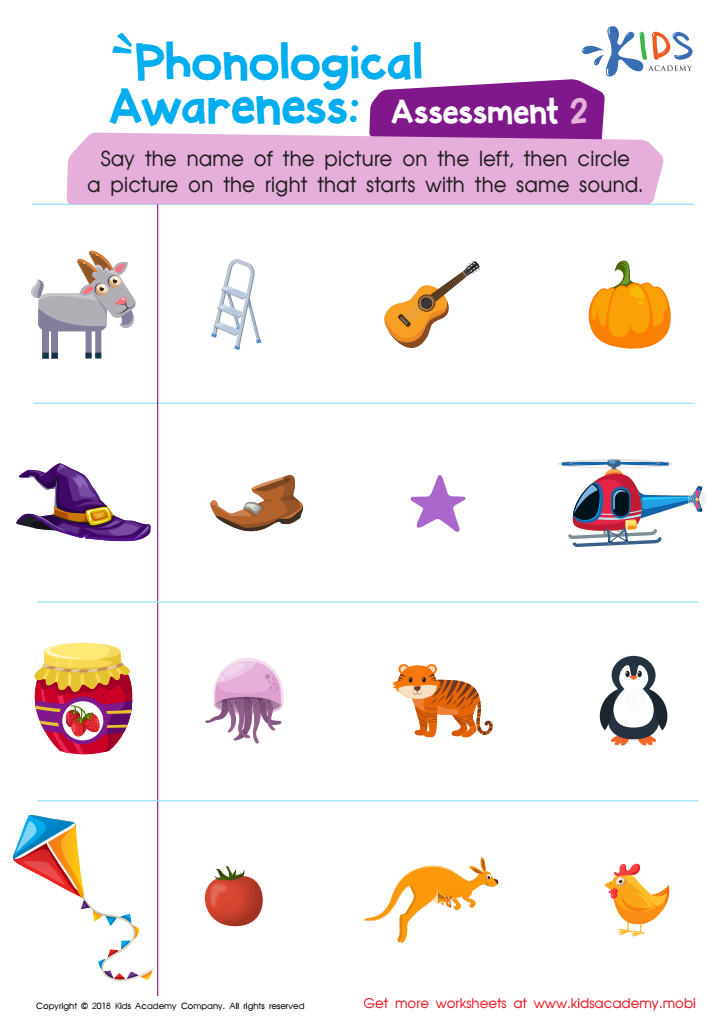

Phonological Awareness: Assessment 2 Worksheet
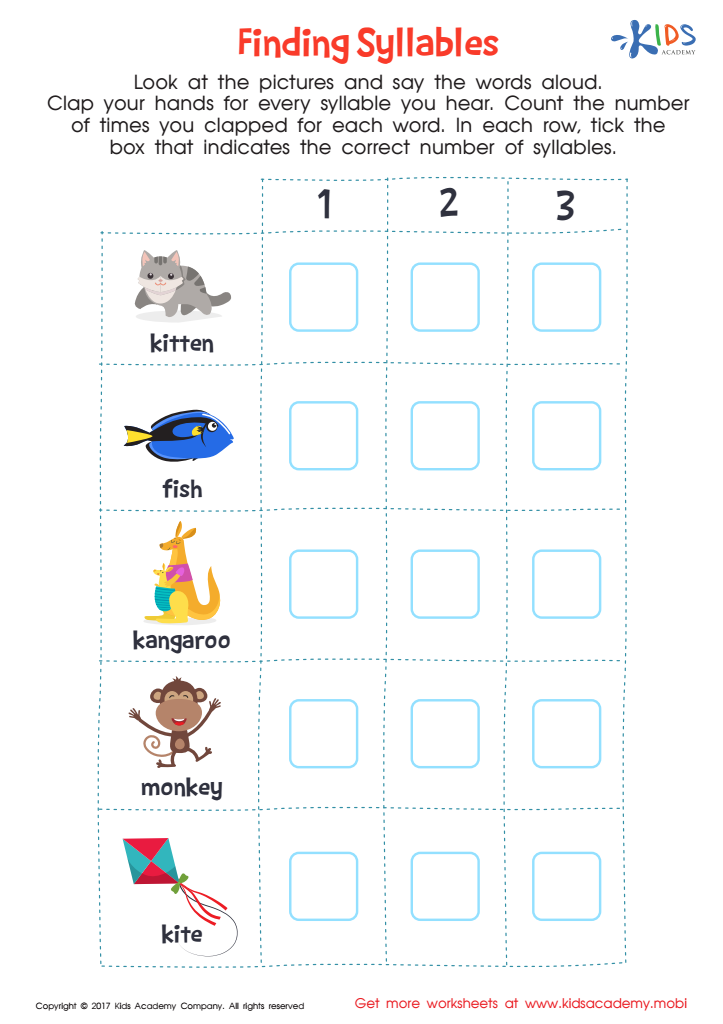

Finding Syllables Word Structure Worksheet
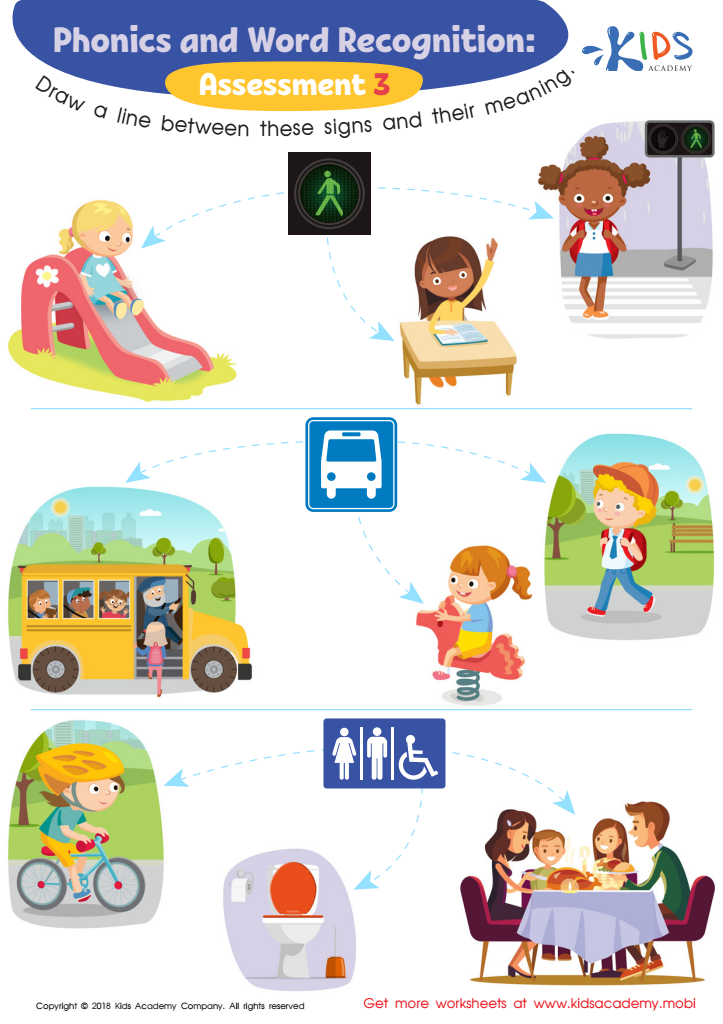

Phonological Awareness: Assessment 3 ELA Worksheet
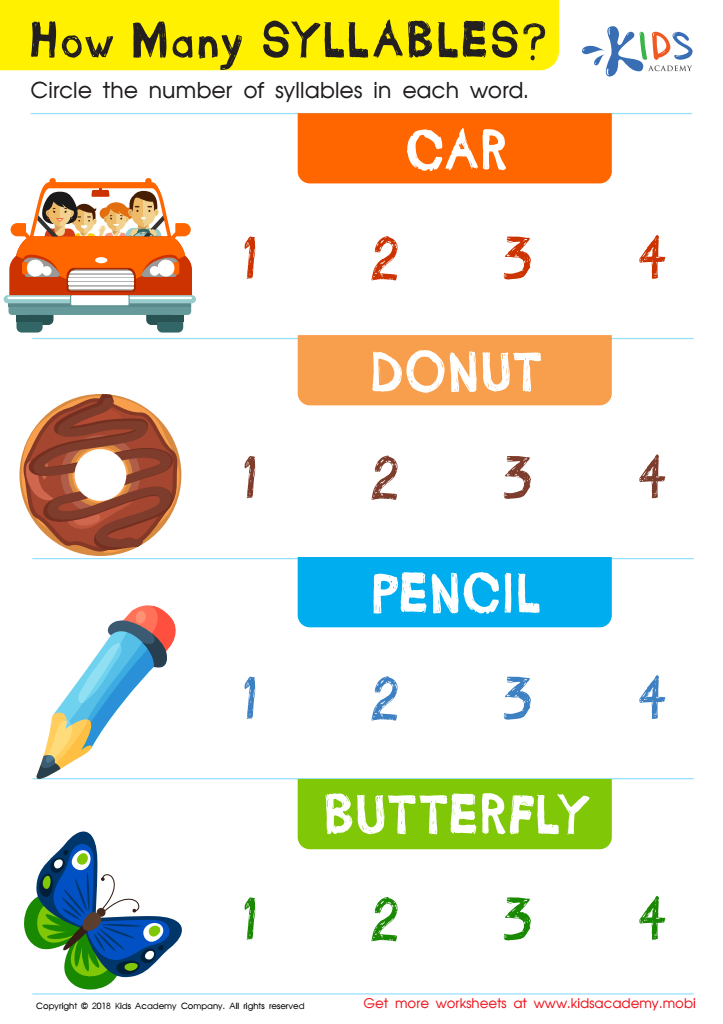

How Many Syllables? Worksheet
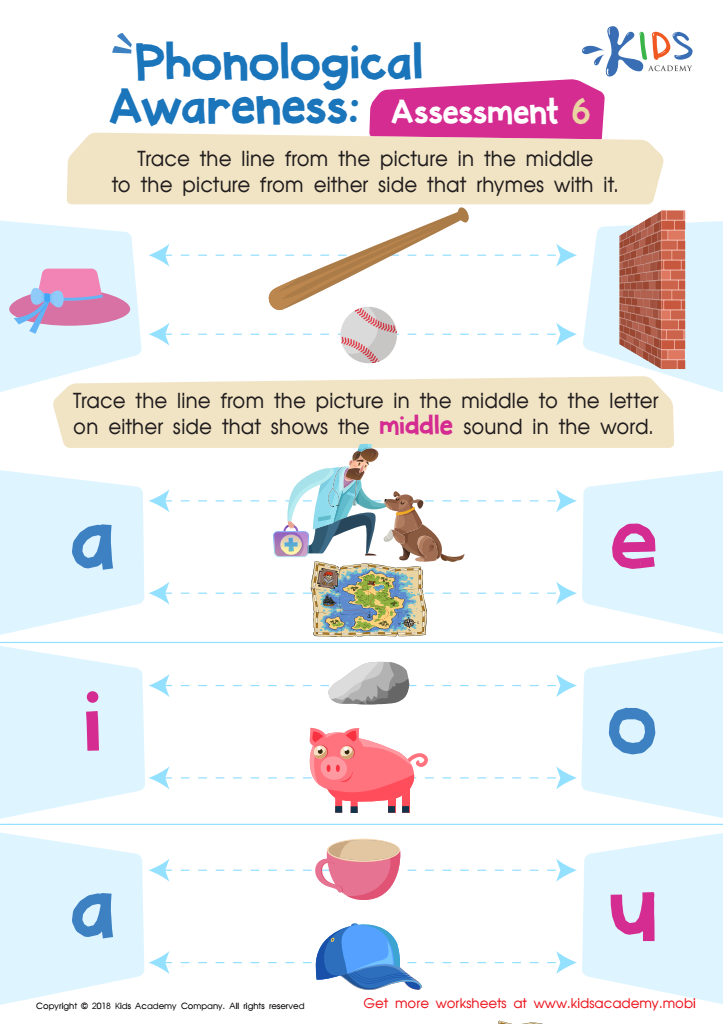

Phonological Awareness: Assessment 6 Worksheet
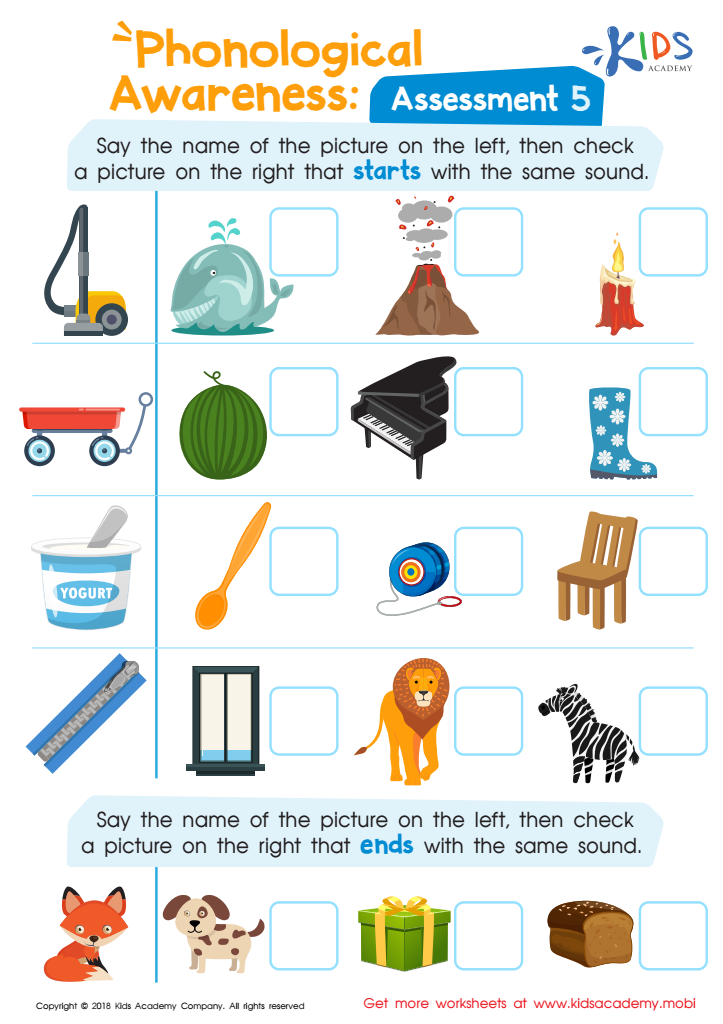

Phonological Awareness: Assessment 5 Worksheet
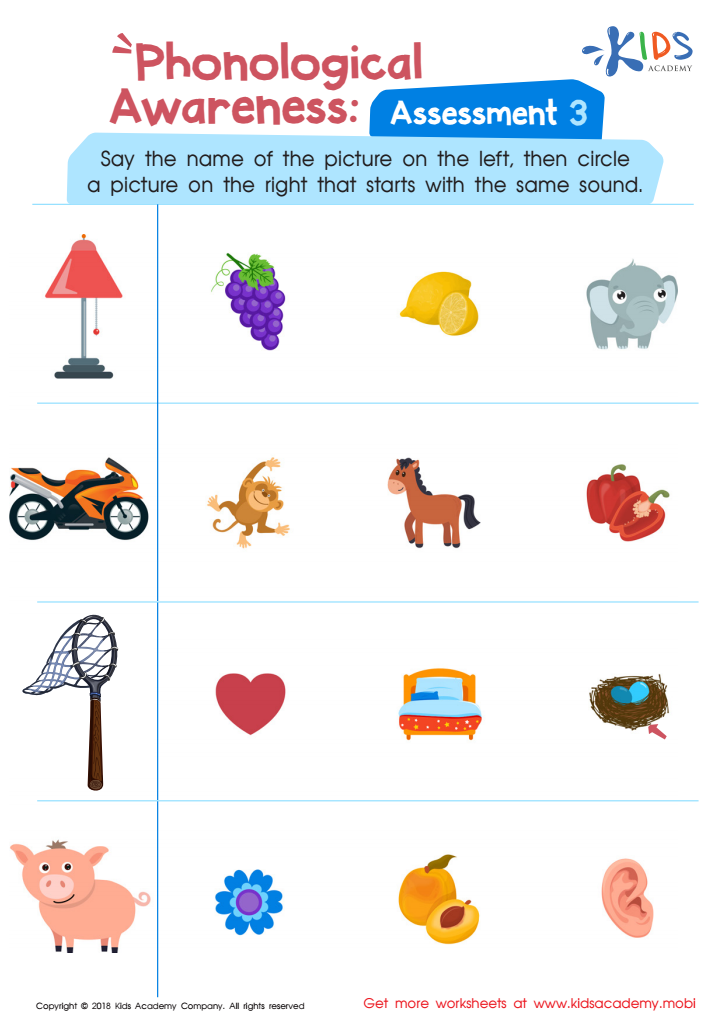

Phonological Awareness: Assessment 3 Worksheet
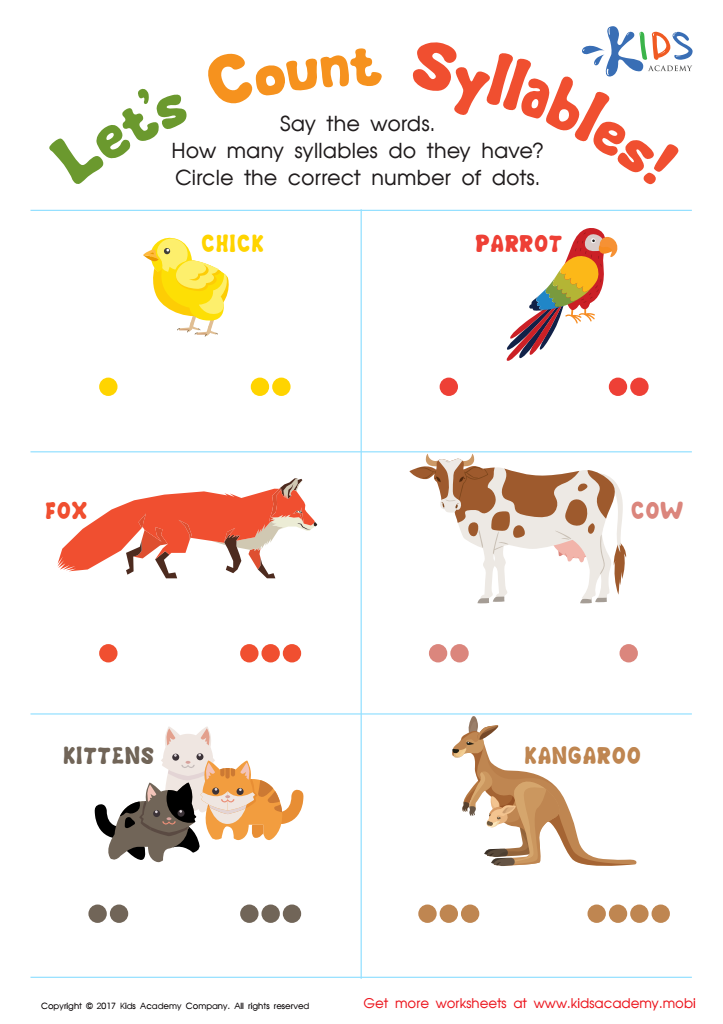

Lets Count Syllables Worksheet
Phonological awareness is a critical foundation for early literacy development in children aged 4-5. As parents and teachers, understanding its importance can significantly impact a child's reading and writing skills later on. Phonological awareness involves recognizing and manipulating sounds at the word, syllable, and phoneme levels, which are essential skills for decoding and encoding words.
At this age, children are beginning to build their language skills, and phonological awareness can help enhance their vocabulary and listening abilities. Engaging in activities like rhyming, syllable counting, and sound isolation can not only be fun but also foster a deeper understanding of how language works. When children develop a strong grasp of phonemic awareness, they become more confident readers and spellers.
Moreover, studies have shown that phonological awareness correlates highly with future reading success. By investing time in phonological activities, parents and teachers can help prevent reading difficulties and promote a love of learning. Early intervention can make all the difference, setting children on a positive literacy path. In conclusion, supporting phonological awareness at ages 4-5 equips children with essential tools for academic achievement and lifelong learning.

 Assign to My Students
Assign to My Students





















